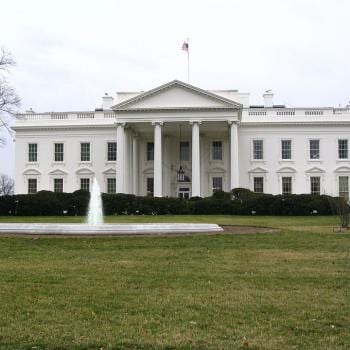The principle of double effect has, through the years, become more prevalent in Catholic discussion because of its application with abortion. The principle is one of morality, where it says one can do a specific action which will have a bad effect, if that bad effect is not intended, if the effect and reason for the action is good (or at least neutral), and if the good intended is proportionately greater than the unintended evil. The actor must not consider the bad effect as a part of the means of the act, but rather, entirely unintended, if not undesirable.
The reason for this principle should be obvious: real moral activity in the world is tricky and often of mixed moral value. While we should always strive to do no evil, indirect, material cooperation of evil is near impossible to overcome. Even if we go into the wilderness and aim to become an ascetic cut off from the world, that very action means we give up our responsibility to the world, and what we fail to do that leads to the increase of evil in the world will be a part of the evil which has come about from our action.
The principle of double effect relates to abortion when dealing with questions such as ectopic pregnancies, where the baby is lodged in a place which would lead to the death of the woman if not removed , or in the case of cancer treatments, where a pregnant woman dying with treatable cancer can take the treatment to save her life, even if the baby will end up killed in the process. In both situations, doctors are allowed to heal the pregnant woman, despite the fact that the child will die. The intention of healing the mother is a good which is seen as proportionate to the bad effect of the death of the child, because if there were no treatment, both the baby and the mother would likely die.
This answer, which has become routine, is understood by most Catholics. It seems natural. And yet, it is of rather recent development.
During the reign of Pope Leo XIII, questions relating to such procedures were given to the Holy Office, and the official reply was that such medical procedures could not be licitly done. As an example, we read in Denzinger 1890c:
[From the reply of the Holy Office to the Dean of the faculty of theology of the University of Marienburg, the 5th of March, 1902]:
To the question: “Whether it is at any time permitted to extract from the womb of the mother ectopic fetuses still immature, where the sixth month after conception has not passed?”
The reply is:
“In the negative, according to the decree of Wednesday, the 4th of May, 1898, by the force of which care must be taken seriously and fittingly, insofar as it can be done, for the life of the fetus and that of the mother; moreover, with respect to time, according to the same decree, the orator is reminded that no acceleration of birth is licit, unless it be performed at the time and according to the methods by which in the ordinary course of events the life of the mother and that of the fetus are considered.”[1]
Any action which would have killed the child in the womb to deal with an ectopic pregnancy was seen, at that time, as a direct action against the child and for this reason, an abortion. While we would now say that the direct action is upon the mother, and the child is indirectly affected, it is easy to see how this could be reasoned out in either direction, and why the question is one of prudence in relation to a very difficulty, indeed, sorrowful situation. The ideal is and should always be to have no death involved. If there is a way to save such embryos in the future, they must be saved. But we do not live in an ideal world, and often the prudential decision might not be apparent to all – some will think only in the ideal (do not kill the fetus) while others will look to the practical situation (heal the woman). Both are right in their desires. Indeed, both are, in their way, the responsibility of the doctors to ensure as best they can. But when they cannot, it has been determined that double effect now allows for a good that would also include an undesired evil; it does not say the evil is not an evil, but dispenses one from the guilt, as long as that evil is not intended.
This leads to three questions which I think we should all consider. Where else could the principle of double effect be seen as applicable in the future? Can it lead into developing further our understanding of practical action in relation to moral theology? Or will it be a dead end, and a principle which must itself be put to question? I have my opinions on these questions, but I would like to hear with others have to say, and see how I can form a better opinion through others.
[1] Henry Denzinger, The Sources of Catholic Dogma. Trans. Roy J. Deferrari (St Louis, MO: B. Herder Book Co., 1957), 475.











